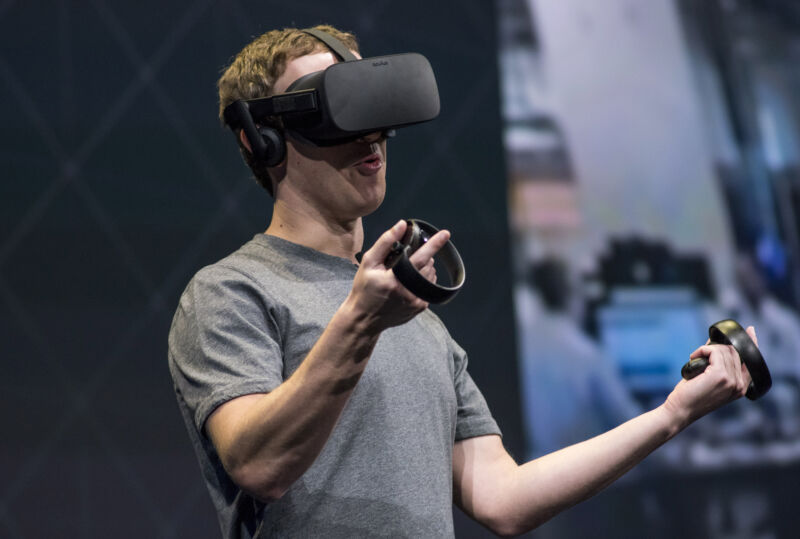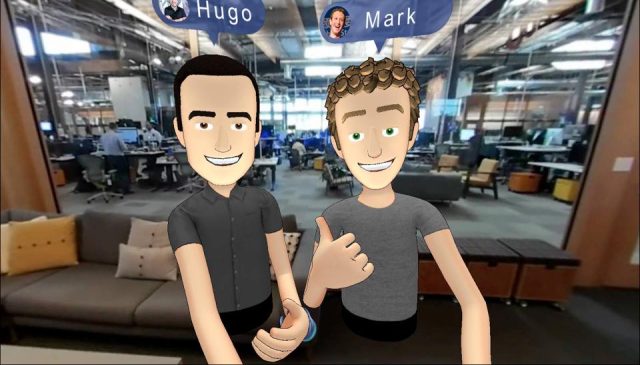
Facebook mastered social media by giving people an easy way to share their offline lives with friends, family, and complete strangers on the Internet. So why is the company now trying to invent a virtual universe that effectively turns its back on reality?
Over the past week, the social media company has blitzed media outlets with news about its “metaverse” initiative, a plan to create virtual worlds where people can interact to play games, have meetings, and so on. Last week, CEO Mark Zuckerberg shared his metaverse plans with the public in an interview with The Verge. Then, earlier this week, Facebook announced that it would be putting together a metaverse team staffed with a handful of longtime VPs.
It’s clear that Zuckerberg has been thinking about this metaverse idea for a while. But the timing of Facebook's announcement is interesting, to say the least. Facebook has “a history of doing these kinds of technical projects that look like they might be revolutionary at times when they’re being criticized for their lack of social responsibility,” Jen Goldbeck, a computer scientist and professor at the University of Maryland, told Ars.
Facebook has faced its share of scrutiny in recent months. Lawmakers have been floating antitrust and Section 230 bills that would hit the company hard. It was caught earlier this year autogenerating pages for white supremacist groups. And yesterday, hearings began in the House of Representatives into the insurrection that breached the US Capitol in January, which was partially organized using Facebook apps and sites.It's probably an overstatement to say that the metaverse news was released to serve as an intentional distraction from the company’s current problems. But the thought undoubtedly crossed someone’s mind at the company. There’s a “70 percent” chance that Facebook’s metaverse project is a “distraction from all the bad things that are going on,” Goldbeck said. “The last thing they want is more discussion of their algorithms and Q-Anon and extremist groups.”
As a distraction, the metaverse is almost too perfect. It’s a flashy news item that attempts to position Facebook and Zuckerberg as visionaries inventing the future. It’s also literally a way to escape reality. If Zuckerberg ever wanted a metaverse to escape to, where Facebook exerted influence over everything from physics to religion, that time is probably now.
Into the metaverse
The term “metaverse” first appeared in Snow Crash, a 1992 sci-fi novel by Neal Stephenson, where it was a virtual world in which people could interact through their avatars, complete with rules and social norms that differed from the real world. The concept appeared in other forms before Stephenson’s book, and it has been revisited and rehashed numerous times over the years.
Zuckerberg’s vision of the metaverse sounds pretty similar. “You can think about the metaverse as an embodied Internet, where instead of just viewing content, you are in it,” he said in his interview with The Verge.

Still, it’s not clear that the metaverse is the killer app for VR, nor is it an obvious evolution of social media. “There was a very clear path for a while,” Goldbeck said. “We were going to have more interactive social media, we were going to have more mobile stuff, then we were going to have more kinds of media. Now, what is the next thing? This feels exactly like a thing that someone would say, 'Well, maybe the next big thing is the metaverse.'”
Turning away from the real world
Inside Facebook, developing the metaverse may seem like an obvious next step. The company has a large user base that uses its platforms for a variety of everyday things, from sharing updates to shopping, gaming, and more. Add in a dollop of VR and some other buzzword-laden technologies, and you’ve got a metaverse.
In some use cases, Facebook might be on to something. “There are places where people are happy to stay virtual,” Goldbeck said. “This is the tension we’re starting to see emerge now. There are a lot of people who are like, 'This remote working is great.'” And Facebook could be the company to make it happen. They have deep pockets and a roster of talented engineers. “There are people inside Facebook whose job it is to figure out what the next big thing is,” Goldbeck said.
But in many ways, the metaverse project is a fundamental shift away from what made Facebook successful. First, Facebook is a company that tends to succeed when it iterates on existing ideas or solves genuine problems. Zuckerberg’s initial version of Facebook, called "Facemash," was a 2003 Harvard knockoff of another site called “Am I Hot or Not” that launched in 2000. Later Facebook iterations aped features from Friendster, MySpace, and others.
Even the company’s technological crown jewel, the News Feed, wasn’t created due to pie-in-the-sky dreaming about what could take social media to the next level. It was a solution to a real problem—as people added more friends on Facebook, they were getting inundated with updates. News Feed and its algorithms helped cut down on the chaos, prioritizing content that a user was more likely to engage with. Another Facebook hallmark—ads in the News Feed, the company’s current cash cow—was born out of its struggles to monetize users on mobile phones.
The metaverse also cuts against a key part of Facebook’s brand—allowing people to share their lives with friends and family. For many, the platform’s appeal comes from users' ability to like, comment on, and share content related to their real lives—not their virtual ones.
Zuckerberg may truly believe that the metaverse is the next big thing. But it can also be true that the project serves as a convenient distraction from the problems the company faces. At the same time, it can be a reward for loyal executives who want to dream about the future rather than think about automated content moderation. And it can also be a message to investors that the company is making good on past investments in VR and other technologies that have yet to pay off.
In a way, that’s the beauty of the metaverse. It can be whatever you want it to be.
reader comments
98